
Eating seems like a simple task, but it involves a series of coordinated movements. From bringing food to your mouth to swallowing, each step is crucial for proper nutrition and overall well-being. However, for some children, eating and drinking can be challenging. If your child experiences difficulties such as coughing, gagging, or refusing food, our specialized service is here to help.
From infancy, children learn to eat and drink, progressing from sucking to handling solid foods. However, some children may face obstacles along the way. Spilled drinks, gagging on new foods, or refusing to eat certain textures are common challenges. While some difficulties are typical and resolve with time, persistent issues may suggest a feeding or swallowing disorder.
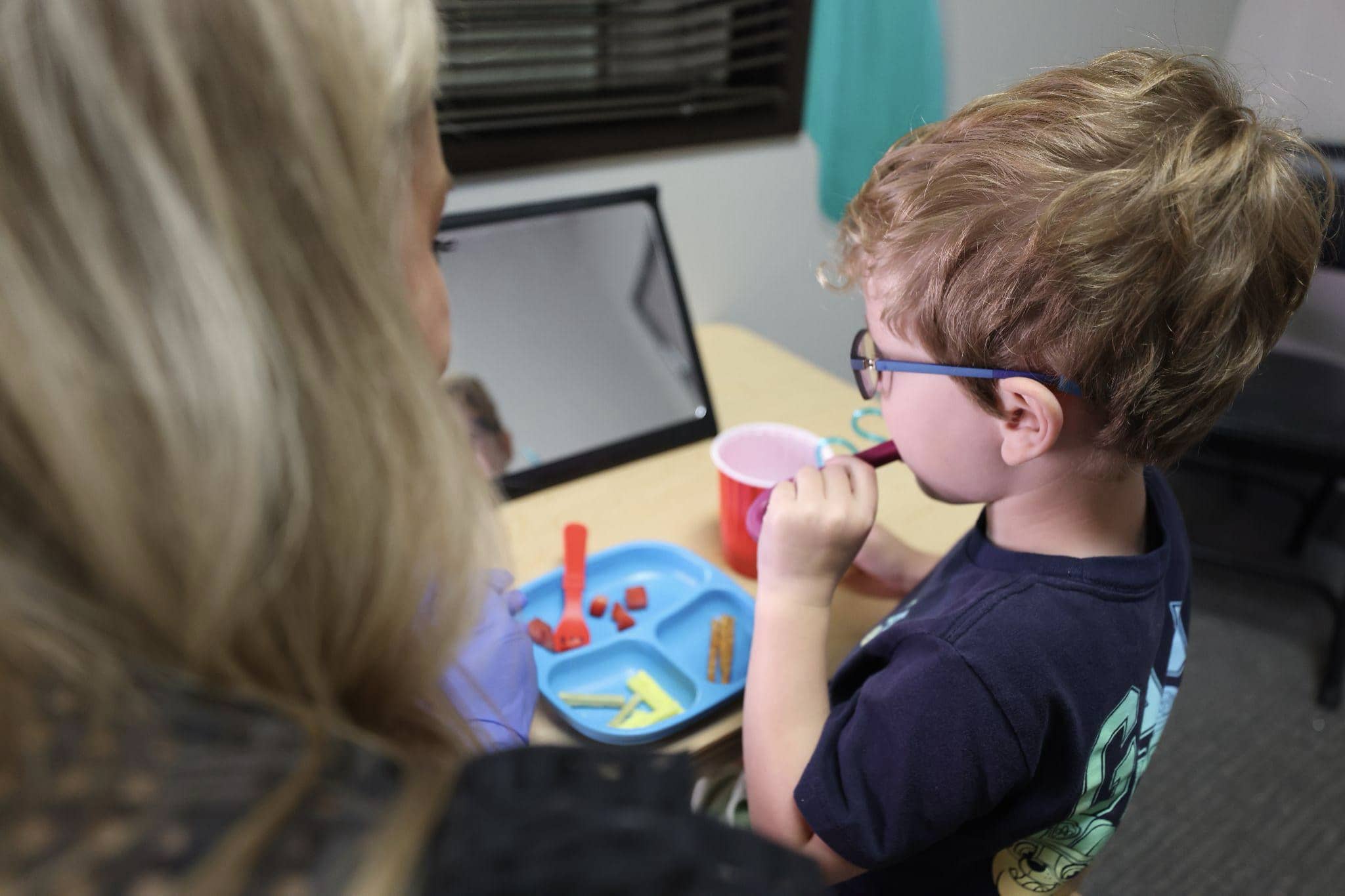
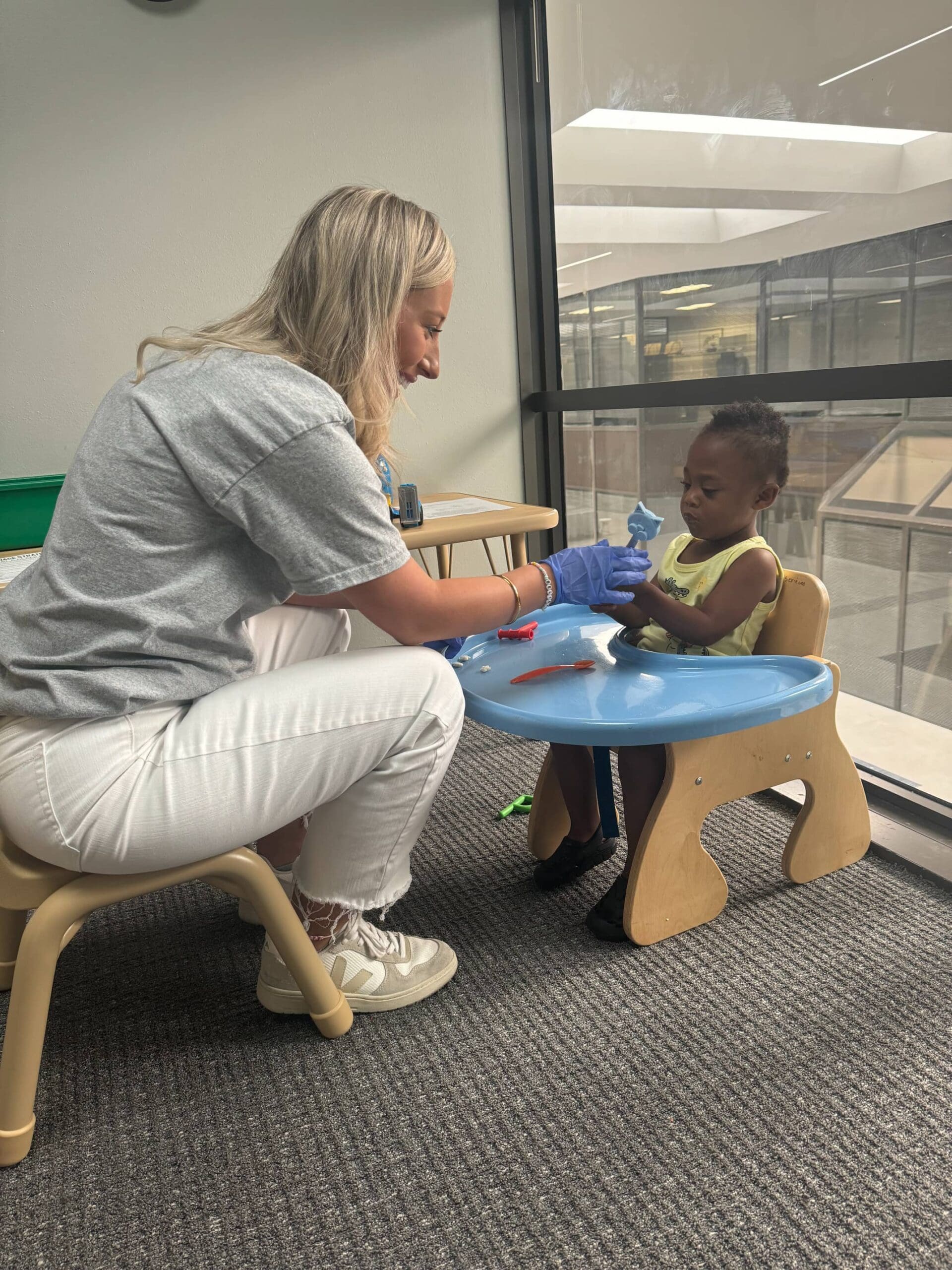
Swallowing therapy is a specialized treatment designed to address and improve difficulties with swallowing, a condition known as dysphagia. Dysphagia can arise from various underlying issues, including medical conditions, neurological disorders, or age-related changes. It can significantly impact an individual’s ability to eat and drink safely, potentially leading to complications such as choking, aspiration, or poor nutrition.
Our goal is to make the process of eating and drinking as secure and enjoyable as possible. By focusing on improving swallowing function, we aim to enhance your overall quality of life, support better nutritional intake, and reduce the risk of complications associated with dysphagia. We work closely with you and your family to ensure that therapy is both effective and seamlessly integrated into your daily routines.
Whether you are managing swallowing difficulties due to a medical condition, neurological disorder, or age-related changes, our dedicated team is here to provide expert support and compassionate care. Our commitment is to help you achieve a safer and more satisfying eating experience, fostering greater well-being and a higher quality of life.
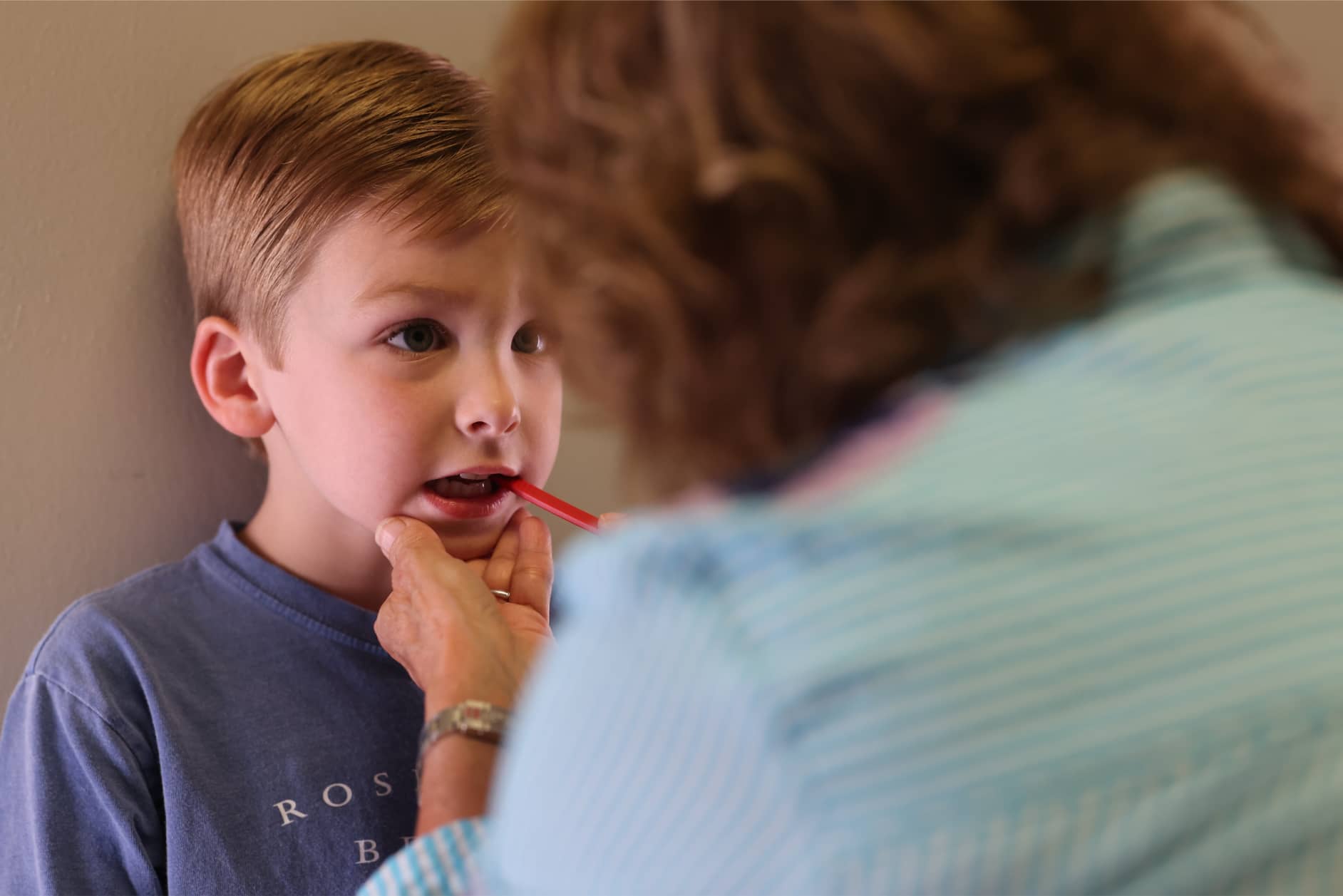
At Bliss, we offer comprehensive evaluation and treatment for feeding and swallowing disorders. Our Speech/Language Pathologists (SLPs) are trained to assess your child’s unique needs and develop personalized intervention plans. Using specialized techniques and a multidisciplinary approach, we address the underlying causes of feeding disorders and empower children to enjoy mealtime and thrive.
As a parent or caregiver, you play a vital role in your child’s journey to improved feeding and swallowing skills. By actively participating in our treatment process and implementing strategies at home, you can support your child’s progress and enhance their overall well-being.
Together, we can help your child overcome feeding and swallowing challenges and enjoy a positive relationship with food and nutrition. Reach out to our team today to learn more about our services and how we can support your child’s health and development.
Swallowing Therapy focuses on enhancing the safety and efficiency of swallowing. This therapy is crucial for individuals experiencing swallowing difficulties, also known as dysphagia, which can result from medical conditions, neurological disorders, or aging. Our skilled therapists assess swallowing function and employ strategies to strengthen the muscles involved in swallowing, modify food textures, and teach techniques to reduce the risk of choking and aspiration. Our goal is to improve the overall quality of life by making eating and drinking a more secure and enjoyable process.
Feeding Therapy is designed to help individuals of all ages who experience difficulties with eating and drinking. Whether due to sensory sensitivities, motor challenges, or behavioral issues, at Bliss, we address the root causes to create a more enjoyable and safe mealtime experience. Our therapists use a variety of techniques to improve oral skills, encourage positive eating habits, and ensure nutritional needs are met. We work closely with families to develop customized plans that promote comfort and confidence at the table.
By prioritizing spoken language development and involving caregivers in the learning process, our therapy promotes comprehensive language acquisition and integration.
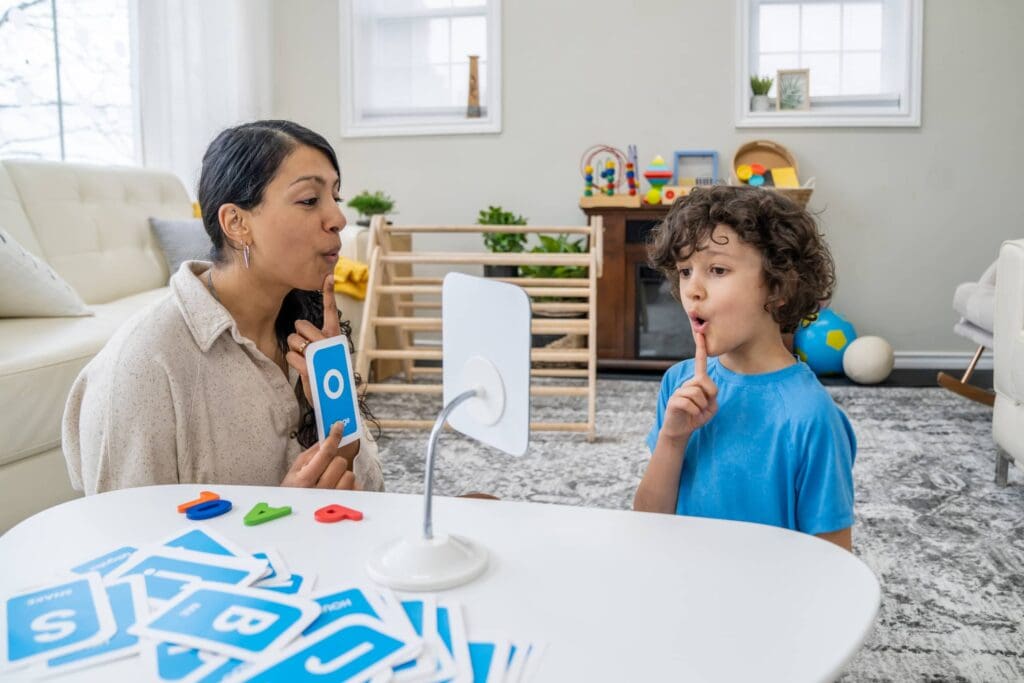
Our trained speech/language pathologists target issues such as tongue thrust, incorrect swallowing patterns, and oral posture problems to provide appropriate intervention.
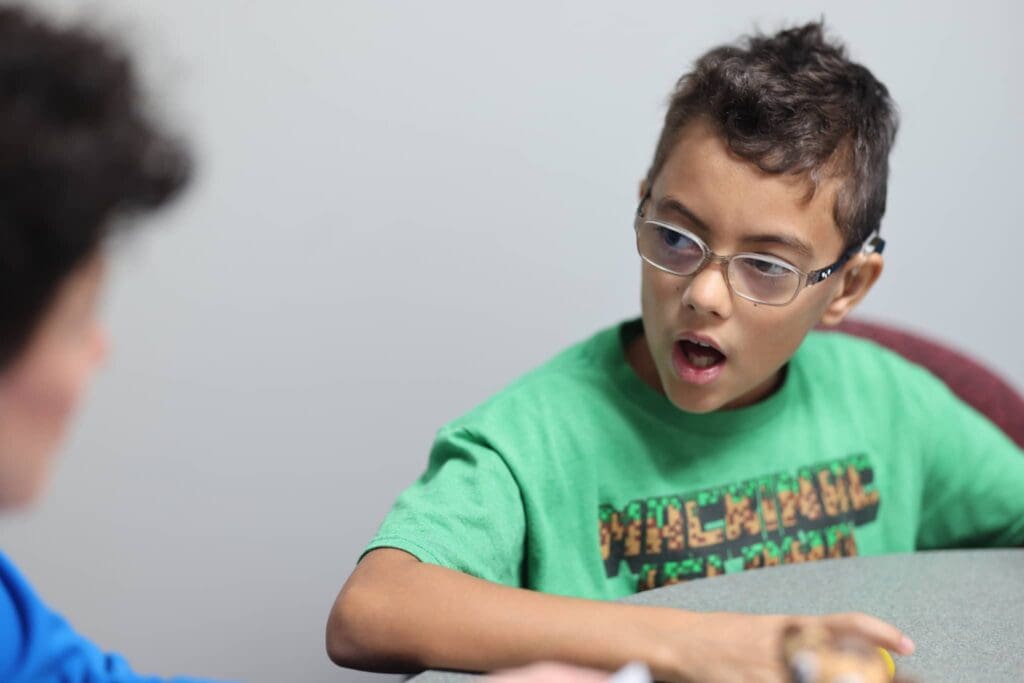
Cochlear implant rehabilitation helps individuals adapt to and maximize the benefits of cochlear implants prior to and following activation through therapy services.
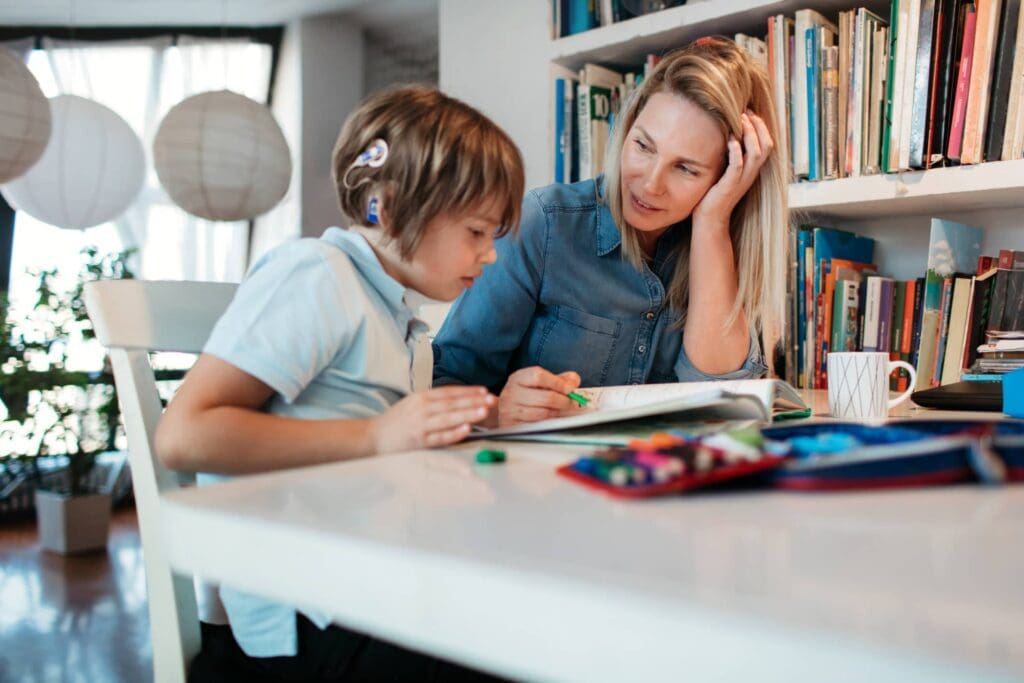
Aural rehabilitation is a speech therapy service provided to both children and adults who have been diagnosed with hearing loss following hearing aid fitting or cochlear implant activation

Our speech/language pathologists specialize across a variety of speech and language needs for both the pediatric and adult populations.
